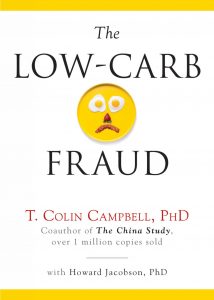
Kelly McGonigal is one of my favorite science/personal-development/psychology teachers and writers. And in a testament to her versatility and breadth of interests, her print books are in three different sections of my library: habits and behavioral science (The Willpower Instinct); stress (The Upside of Stress); and exercise/movement (The Joy of Movement, her latest work.) Her audio course, The Science of Self-Compassion, is both a scientific tour de force and a big-hearted hug from a caring friend.
She manages a rare writerly and scholarly trick: to adhere to the evidence while letting her own humanity flow through every page.
Which is just to say, I had to deal with major Fanboy energy when I connected with her via Skype.
Her latest book, The Joy of Movement, is both a work of science and a love letter to the human body/spirit.
I admit, when I ordered it, I thought I knew what I was going to read: a well-researched, engaging tale of how exercise improves our mood and our brain functioning. I was delighted to be surprised by a treasure trove of ideas and philosophies that go far beyond the biochemistry of mood and movement.
One of my favorite chapters, “Collective Joy,” is a great example of the Above and Beyond that McGonigal pursues in her exploration of the benefits of movement. Turns out that when we move as a collective (dance class, group yoga, New Zealand's pre-rugby Haka, bouncing up and down at a night club), we bond with the strangers with whom we're moving. A famous experiment, the Rubber Arm Illusion, highlights what's happening: our brains widen the part of the world that we define as “us” to include those other bodies.
The subtitle of The Joy of Movement is “How Exercise Helps Us Find Happiness, Hope, Connection, and Courage.”
Really, it's a book about becoming fully human.
A book about the unnaturalness of not moving; of sedentarism; of digital and virtual reality superseding the felt and lived experience of our flesh; of thinking that “exercise” is an unpleasant obligation or some weight loss gimmick.
McGonigal couldn't have been more open or generous during our conversation. We reminisced about one of our favorite yoga videos, Erich Schiffman's classic Ali McGraw: Yoga Mind and Body (Schiffman teaches; the actor follows). She may have given me a mandate to write a book about the Joy of Martial Arts, which I sorta complained was missing from her book 😉
And we dove into Stephen Porges' stunning contribution to the field of human psychology, the Polyvagal Theory, and how that interfaces with the humanizing and salubrious effects of a joyful movement practice.
Not much “how to” in this conversation; honestly, there's not that much “how to” in The Joy of Movement. Instead, it's a Why To and a Reminder Who.
This book continues and expands the themes in her prior work: despite our challenges, we are not broken beings.
Despite being wired to overconsume calories when they are available, we also have hardwired instincts for reflection, planning, and self-control.
Despite having a fight-or-flight response that can get triggered by a million little and big things in our environment, we also have a “tend and befriend” impulse that can also arise in response to those same triggers.
And despite having an evolutionarily adaptive “conservation of energy” impulse that can keep us on the couch and off the treadmill or trail, we also have vigorous, expressive, and challenging movement woven into our individual and collective DNA.
If you “work out” regularly, read this book. It will put your efforts into a beautiful perspective.
If you struggle to exercise regularly, read this book. It will offer you a gentle invitation to put down the self-judgment, and take up movement as an expression of self-love.
If you think you aren't an athlete; don't have the body for it; and no one wants to see you in yoga pants, read this book. It will help you reclaim your right to take up space with dignity, laughter, tears, and sass.
I'm a better person for Dr McGonigal's work, and for the time we spent together talking about our shared joy. I hope the conversation has the same effect on you.
Enjoy, add your voice to the conversation via the comment box below, and please share – that's how we spread our message and spread our roots.
Links
The Science of Compassion – audioprogram
Ali McGraw: Yoga Mind and Body
Stephen Porges on Plant Yourself
Support the Podcast
This podcast is not underwritten by advertising, so I can experience complete editorial autonomy without worrying about pissing off the person paying the bills. Instead, I pay the bills, with your help. It's free for those who can't afford to pay, and supported by those who can. You can contribute to the growth and improvement of the podcast by . Click the “Support on Patreon” or “Donate” buttons on the right to help out.
Ready to embark on your Big Change journey?
Are you tired of knowing what to do, and still not doing it consistently? The WellStart Health Big Change Program, led by Josh LaJaunie and myself, will help you take the steps to finally live according to your knowledge and values.
Go to WellStartHealth.com/program to learn more, and to get notified about the next program.
Ask your questions or share your feedback
Comment on the show notes for this episode (below)
Connect with me
Subscribe, rate, and review in iTunes
Join the Plant Yourself Facebook Page
Music
 The Plant Yourself Podcast theme music, “Dance of Peace (Sabali Don),” is generously provided by Will Ridenour, a kora player from North Carolina who has trained with top Senegalese musicians.
The Plant Yourself Podcast theme music, “Dance of Peace (Sabali Don),” is generously provided by Will Ridenour, a kora player from North Carolina who has trained with top Senegalese musicians.
It can be found on his first CD, titled Will Ridenour.
You can learn about Will, listen to more tracks, and buy music on his website, WillRidenour.com.
Gratitudes
Thanks to Plant Yourself podcast patrons – Kim Harrison – Lynn McLellan – Anthony Dissen – Brittany Porter – Dominic Marro – Barbara Whitney – Tammy Black – Amy Good – Amanda Hatherly – Mary Jane Wheeler – Ellen Kennelly – Melissa Cobb – Rachel Behrens – Christine Nielsen – Tina Scharf – Tina Ahern – Jen Vilkinofsky – David Byczek – Michele X – Elspeth Feldman – Leah Stolar – Allan Kristensen – Colleen Peck – Michele Landry – Jozina – Sara Durkacs – Kelly Cameron – Wayne Pedersen – Janet Selby – Claire Adams – Tom Fronczak – Jeannette Benham – Gila Lacerte – David Donohue – Blair Seibert – Doron Avizov – Gio and Carolyn Argentati – Jodi Friesner – RuthAnn Funderburk – Mischa Rosen – Michael Worobiec – AvIvA Lael – Alicia Lemus – Val Linnemann – Nick Harper – Bandana Chawla – Martha Bergner – Susan Ahmad – Molly Levine – The Inscrutable Harry R – Susan Laverty the Panda Vegan – Craig Covic – Adam Scharf – Karen Bury – Heather Morgan – Kelly Michiya – DeAnne Norton – Bonnie Lynch of Plant Happy Oregon – Sabine Kurtzhals – Nigel Davies – Marian Blum – Teresa Kopel – Julian Watkins – Brid O'Connell – Shannon Herschman – Linda Ayotte – Holm Hedegaard – Isa Tousignant – Connie Haneline – Erin Greer – Alicia Davis – Heather O'Connor – Carollynne Jensen – Sheri Orlekoski of Plant Powered for Health – Karen Smith – Scott Mirani – Karen and Joe Crabtree – Tanya Lewis – Kirby Burton – Theresa Carrell – Kevin Macaulay – Elizabeth Rothschild – Ann Jesse – Sheryl Dwyer – Jenny Hazelton – Valerie Pelletier – Peter W Evans – Colleen Harrison – Justine Divett – Joshua Sommermeyer – Dennis Bird – Darby Kelly – Lori Fanney – Linnea Lundquist – Valarie Hummel – Emily Iaconelli – Levi Wallach – Rosamonde McAtee – Dan Pokorney – Stephen Leinin – Patty DeMartino – Mike and Donna Kartz – Deanne Bishop – Bilberry Elf – Günter Schmid – Marjorie Lewis – Kelly Moulden – Tricia Adams – Ian Cramer – Nancy Sheldon – Lindsey Bashore – Gunn Marit Hagen – Tracey Gulledge – Lara Hedin – Meg from Mamasezz – Rachelle Kennedy – Diana Goldman – Stacey Stokes – Ben Savage – Michael K – Hollie Butler – David Hughes -Coni Rodgers – Claire England – Sally Robertson – Parham Ganchi – Amy Dailey – Brian Tourville – Mark Jeffrey Johnson – Josie Dempsey – Caryn Schmitt – for your generous support of the podcast.
Disclosure
This post may contain amazon affiliate links. I may receive amazon gift certificates from your actions on such links.

 Listen to Josh LaJaunie and me narrate
Listen to Josh LaJaunie and me narrate 



